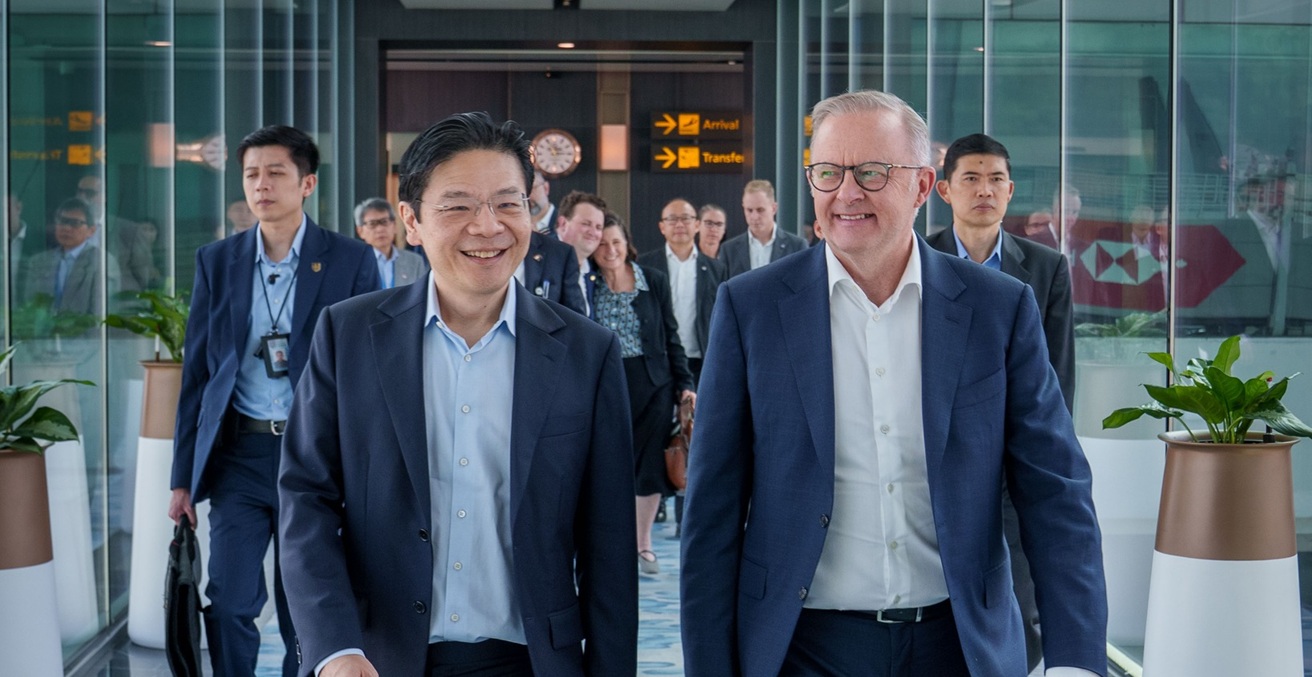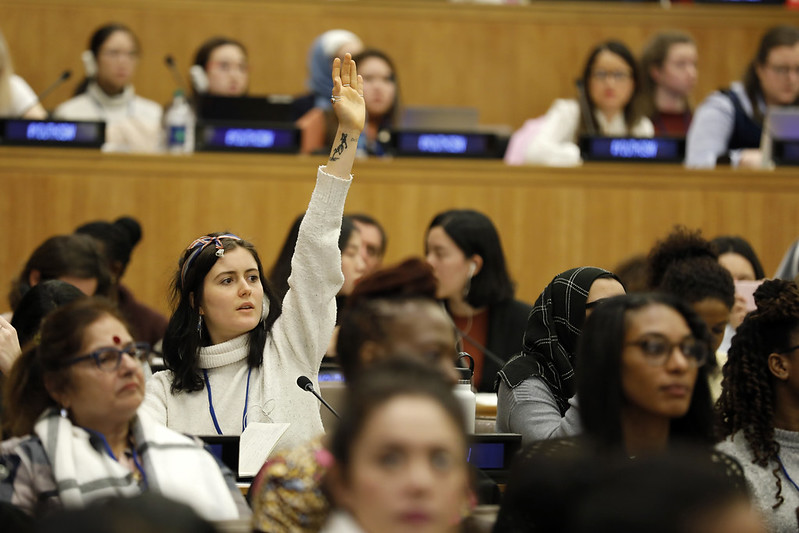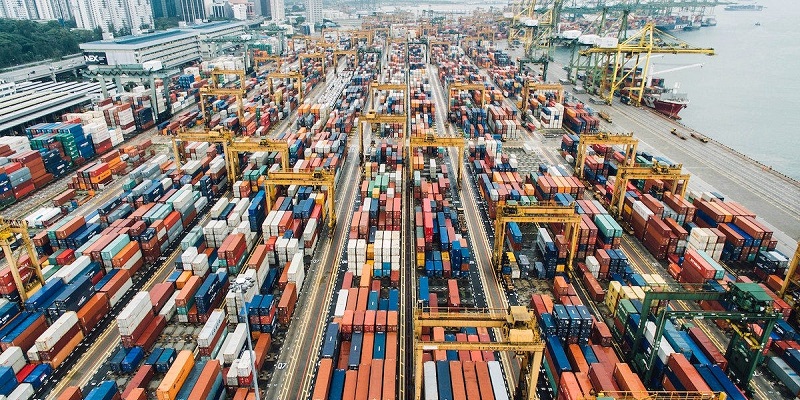Singapore’s 2025 election, coinciding with Australia’s federal election, offers a lens through which to examine the interplay of domestic politics and regional dynamics, particularly in the context of US-China rivalry, trade wars, and Australia’s strategic positioning in the Indo-Pacific.
On 3 May 2025, Singapore held a general election that saw the ruling People’s Action Party (PAP), led by Prime Minister Lawrence Wong, secure a decisive victory, maintaining its political dominance with a supermajority in the 97-seat parliament. This landslide, with the PAP winning all but ten seats, was not merely a continuation of Singapore’s political status quo but a reflection of voter priorities in a region grappling with escalating geopolitical tensions and economic uncertainties.
Singapore’s election: A mandate for stability amid global turbulence
Singapore’s 2025 election was the first under Lawrence Wong, who succeeded Lee Hsien Loong in May 2024, marking a generational shift in leadership. The PAP’s victory, described as a “bellwether” for its enduring popularity and “flight-to-safety,” was driven by voter demand for stability in the face of global economic headwinds, particularly those stemming from President Donald Trump’s trade policies. Singaporeans, prioritising cost-of-living concerns, employment, and housing, entrusted the PAP with a strong mandate to navigate these challenges. The opposition, while fielding a record number of candidates, including 53 women, was decimated, with the PAP securing over two-thirds of the vote in 18 of 33 constituencies.
This outcome underscores Singapore’s role as a predictable and stable regional actor, a quality that resonates with Australia’s own election results, where the incumbent Labor Party, led by Prime Minister Anthony Albanese, also secured a landslide victory. Both nations’ voters signalled a preference for continuity and resilience against external pressures, particularly Trump’s tariff threats and the unraveling of the post-World War II global order.
For Singapore, this mandate empowers Wong to pursue pragmatic foreign policies, balancing relations with major powers like the US and China while reinforcing Singapore’s position as a neutral hub in Southeast Asia. For Australia, Singapore’s reaffirmed stability strengthens a key regional partnership at a time when the Indo-Pacific faces unprecedented volatility.
Implications for Australia: Strengthening a strategic partnership
Australia and Singapore share a deep and multifaceted relationship, underpinned by the Comprehensive Strategic Partnership (CSP) and extensive defence, trade, and people-to-people ties. The PAP’s strong mandate ensures continuity in Singapore’s foreign policy, which is critical for Australia as it navigates a complex regional environment marked by China’s growing influence, US unpredictability under Trump, and rising military tensions in the Indo-Pacific. Singapore’s commitment to a rules-based order and its diplomatic agility align closely with Australia’s foreign policy priorities, as outlined in the Australia in the World: 2025 Snapshot report, which emphasises regional engagement and upholding international norms.
The simultaneous victories of Albanese and Wong, both perceived as counterweights to Trump’s protectionist policies, signal a convergence of interests. Australia’s Labor government has prioritised balanced diplomacy, strengthening ties with Southeast Asian nations like Singapore while maintaining its alliance with the US through frameworks like AUKUS and the Quad. Singapore’s election outcome reinforces its reliability as a partner in these efforts, particularly in maritime security, cybersecurity, and climate initiatives, where both nations have deepened cooperation. For instance, the ASEAN-Australia Special Summit in 2024, hosted by Albanese, celebrated 50 years of Australia’s dialogue partnership with ASEAN, with Singapore playing a central role.
Economically, Singapore’s stability is a boon for Australia, given the city-state’s role as a financial hub and gateway to Southeast Asia. The PAP’s focus on mitigating the impacts of global trade disruptions, such as Trump’s tariffs, aligns with Australia’s Southeast Asia Economic Strategy to 2040, which aims to boost trade and investment in the region. Singapore’s revised 2025 economic growth forecast of 0-2 percent, down from 1-3 percent, reflects the challenges posed by global trade wars, but its proactive measures—such as temporary fiscal support—offer a model for Australia to emulate. Australia, facing its own economic pressures like cost-of-living concerns and skilled labour shortages, can leverage Singapore’s expertise in governance and economic agility to address these issues.
Regional geopolitics: A bulwark against volatility
The Indo-Pacific is at a crossroads, with intensifying great power competition. China’s military buildup and the erosion of the rules-based order create a “brittle, anxious, nonlinear, incomprehensible” (BANI) world. Singapore’s election reinforces its role as a stabilising force in Southeast Asia, which is critical for Australia’s regional strategy of “strategic equilibrium.” This approach seeks to prevent any single power from dominating the region while fostering independent relationships with ASEAN nations. Singapore’s neutral stance and commitment to multilateralism make it a linchpin in this strategy, particularly as China expands its influence through initiatives like the Belt and Road Initiative and security agreements in the Pacific.
The PAP’s victory ensures Singapore will continue to counterbalance China’s regional ambitions without antagonising Beijing, a delicate balance Australia also seeks to maintain. For example, Singapore’s diplomatic agility allows it to engage with both the US and China, as seen in its response to US-China tensions over the South China Sea and technology disputes. Australia benefits from this, as Singapore’s stability reduces the risk of regional flashpoints that could draw Canberra into conflict. Moreover, Singapore’s participation in regional forums like the ASEAN Summit and the IISS Shangri-La Dialogue provides platforms for Australia to advance shared interests in security and economic cooperation.
However, challenges remain. Singapore’s election highlighted voter concerns about geopolitical risks, with opposition parties urged to address issues like Trump’s tariffs and their impact on domestic outcomes. Australia faces similar pressures, with voters increasingly focused on cost-of-living issues and security amid global uncertainty. The risk of “Singapore-washing”—where foreign entities use Singapore as a base to skirt international regulations—poses a potential reputational challenge for both nations, requiring vigilant governance. Australia must also navigate Indonesia’s growing global role and its flirtations with powers like Russia, which could complicate regional dynamics for both Canberra and Singapore.
Looking ahead: A shared vision for the Indo-Pacific
Singapore’s 2025 election outcome strengthens its position as a reliable partner for Australia in a turbulent Indo-Pacific. The PAP’s mandate ensures policy continuity, allowing Singapore to maintain its role as a neutral hub and advocate for a rules-based order, aligning with Australia’s strategic priorities. For Australia, the election results underscore the importance of deepening ties with Singapore through initiatives like the New Colombo Plan, defence cooperation, and economic partnerships.
As both nations face the challenges of a fragmented global order, their shared commitment to stability and regional engagement will be crucial. Australia must capitalise on Singapore’s diplomatic and economic strengths to counterbalance great power rivalry, particularly as Trump’s policies threaten trade and security norms. By aligning with Singapore’s pragmatic approach, Australia can enhance its influence in ASEAN and the broader Indo-Pacific, ensuring a resilient regional architecture that safeguards both nations’ interests.
In conclusion, Singapore’s 2025 election reaffirms its role as a pillar of stability in a volatile region, offering Australia a steadfast partner to navigate the complexities of US-China competition, trade disruptions, and security challenges. The parallel victories of Albanese and Wong signal a regional appetite for leadership that prioritises resilience and cooperation, positioning both nations to shape a balanced and prosperous Indo-Pacific future.
James Chin is professor of Asian Studies at the University of Tasmania and adjunct Professor, Monash University.
This article is published under a Creative Commons License and may be republished with attribution.





